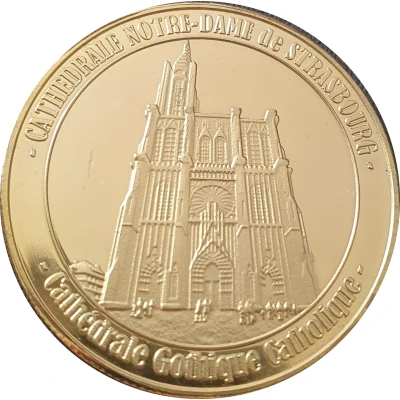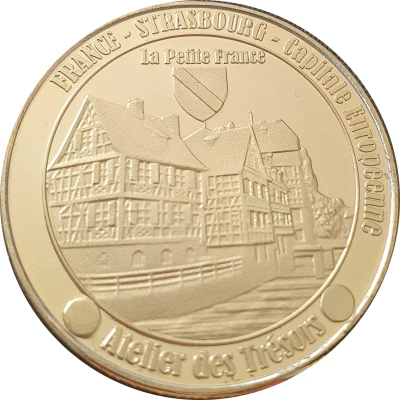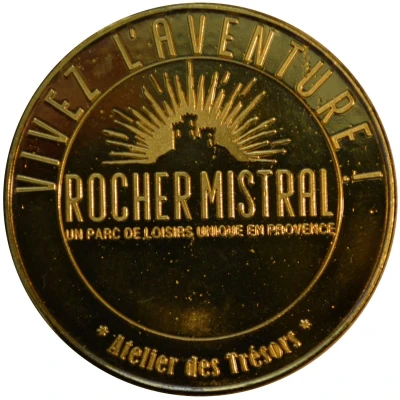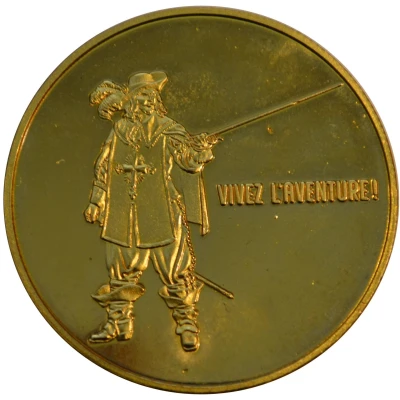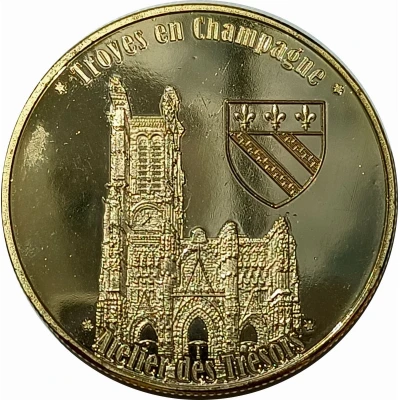
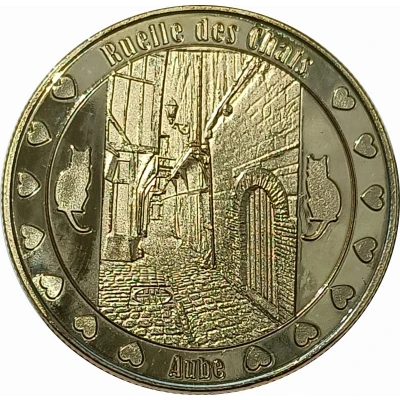

Jeton touristique - Atelier des Trésors - Troyes - La ruelle des chats ND
| Zamak | 12.38 g | 33.9 mm |
| Location | France |
|---|---|
| Issuing entity | Atelier des Trésors |
| Type | Medals › Souvenir medallions |
| Composition | Zamak |
| Weight | 12.38 g |
| Diameter | 33.9 mm |
| Thickness | 2 mm |
| Shape | Round |
| Technique | Milled |
| Orientation | Medal alignment ↑↑ |
| Updated | 2024-11-12 |
| Numista | N#372467 |
|---|---|
| Rarity index | 95% |
Reverse
Typical town lane with half-timbered houses and a cat on either side. Text around the edges separated by hearts.
Script: Latin
Lettering:
Ruelle des Chats
Aube
Edge
Reeded
Comment
Coat of arms of the city of Troyes: (1825) Azure, on a bend argent two double bendlets potentate and counter-potentate or; on a chief azure three fleurs-de-lis or. https://armorialdefrance.fr/page_blason.php?ville=2775
Unlike Chartres cathedral, which was built in a relatively short space of time, the construction of Troyes' Gothic cathedral was particularly long and eventful. Work on the cathedral, which began around 1200 AD, was not completed until the 17th century, and was subject to several interruptions, destructions and program changes. However, the successive architects who oversaw the construction endeavored to respect an overall plan that had probably been drawn up in the early 13th century. So, at first glance at least, the building appears harmonious. https://fr.wikipedia.org/wiki/Cath%C3%A9drale_Saint-Pierre-et-Saint-Paul_de_Troyes
Timber-framed and corbelled houses extend in height. These are constructions that protrude from the vertical plane of a wall, on the extension of the interior floor joists or windchests. Corbelling is also a means of protecting the lower levels of the facade from rainwater runoff, the main cause of deterioration of wood and cob.
With its singular architecture, the alley owes its name to the fact that a cat can pass from one side of the street to the other, through the roofs. The facades touch at the top, and are held together by props. https://fr.wikipedia.org/wiki/Ruelle_des_Chats
